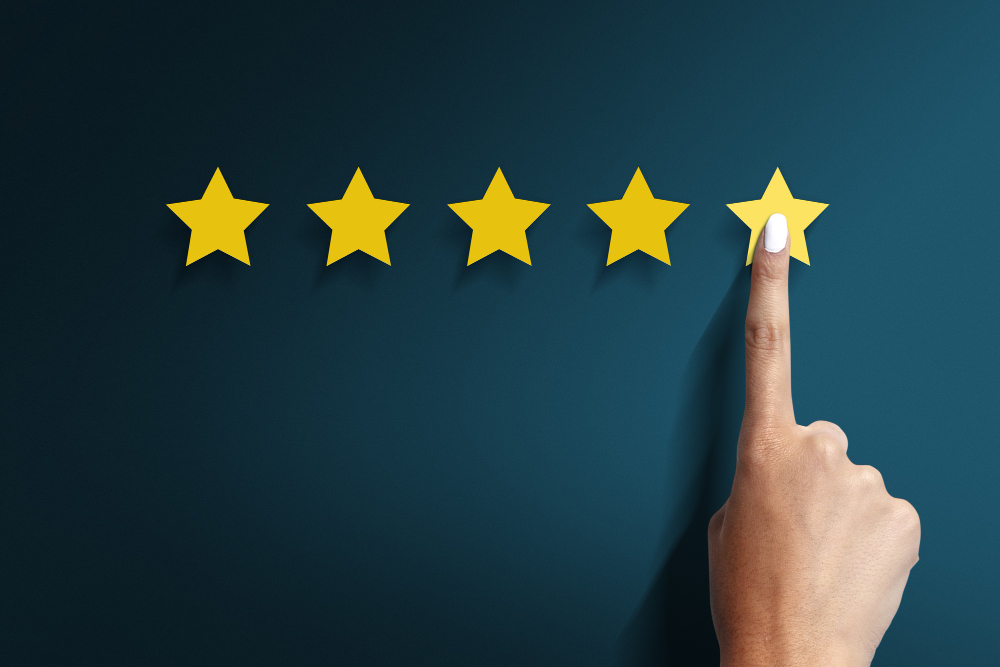A single search result can influence a business decision, an investment inquiry, or a partnership opportunity within seconds. When stakeholders type your brand name into a search engine, what they see shapes their perception before you ever speak to them. This is where SERP narrative control becomes critical. Decision-makers, journalists, and potential clients rely on search engine results pages to validate credibility, assess authority, and evaluate risk. If outdated articles, misleading content, or competitor messaging dominate your search results, your brand story is being written by someone else.
This blog explains how SERP narrative control works, what elements shape your brand’s presence on search engines, and which structured actions help organizations guide perception ethically and strategically. You will learn the foundational components, the operational framework, and the long-term monitoring strategies required to maintain authority in search results. For organizations seeking specialized expertise, Aiplexorm provides structured digital risk management and reputation-led search strategies through its dedicated solutions framework designed to strengthen digital authority and search visibility. Understanding the mechanics outlined below will help you evaluate, implement, and optimize your own approach.
Foundational Elements of SERP Narrative Control
SERP narrative control is not a single tactic but a structured ecosystem of visibility management, authority development, and content positioning. It includes technical optimization, strategic publishing, and brand-aligned digital asset management that collectively influence how search engines interpret and rank information about your organization. Without understanding these foundational elements, efforts to influence search outcomes often become reactive rather than strategic. A structured foundation ensures that every asset—whether a press release, executive profile, or media feature—contributes toward a cohesive and credible brand presence.
To build this foundation, organizations must evaluate ownership of digital properties, consistency of messaging, authority signals, and the performance of branded search queries. This requires auditing existing search results, identifying narrative gaps, and prioritizing high-impact assets for optimization. Rather than focusing only on negative content suppression, the objective is to create a dominant, accurate, and strategically aligned brand narrative that search engines consistently reinforce through ranking signals.
Search Result Composition and Ranking Signals
Search engine results pages are composed of multiple elements including organic listings, featured snippets, knowledge panels, news articles, images, and sometimes video placements. Each of these components contributes to the perception of your brand. Understanding how ranking signals such as relevance, authority, engagement metrics, and backlink profiles influence visibility allows organizations to design a structured approach instead of relying on isolated content efforts.
Ranking signals reward consistency and authority over time. This means that sporadic publishing or inconsistent messaging can dilute your narrative impact. Organizations that aim for effective SERP narrative control must ensure that their most authoritative and accurate assets are technically optimized, internally linked, and externally referenced. This alignment improves the likelihood that search engines prioritize official and credible content when users search for brand-related queries.
Ownership of Digital Assets and Brand Properties
A critical aspect of narrative control is the ownership and optimization of digital properties directly controlled by the organization. These include corporate websites, executive bio pages, press sections, blogs, and verified social media accounts. When these assets are properly structured and interconnected, they signal authority and authenticity to search engines.
If official digital properties are under-optimized or lack structured data, third-party sources may fill the narrative vacuum. By strengthening owned assets with accurate metadata, structured content, and consistent messaging, organizations improve their ability to influence which pages rank prominently. Strong ownership reduces reliance on external platforms and establishes a centralized, credible digital footprint.
Authority Building Through Strategic Content
Authority is built through consistent publication of credible, high-quality content aligned with brand expertise. This includes thought leadership articles, research publications, case studies, and media contributions. When these assets are published on authoritative domains or supported by reputable backlinks, search engines interpret them as validation of brand credibility.
Strategic content must be aligned with brand positioning rather than created in isolation. Each article, interview, or industry contribution should reinforce core narratives and expertise themes. Over time, this accumulation of authoritative signals strengthens SERP narrative control by ensuring that search engines associate the brand with trust, leadership, and subject-matter authority.
Monitoring Branded Search Queries
Branded search queries reveal how users interact with your brand in search environments. Monitoring variations of your brand name, executive names, and related search terms provides insight into emerging narratives or reputational risks. Organizations that actively track these queries can identify shifts in sentiment or visibility patterns before they escalate.
Regular monitoring also allows teams to measure the effectiveness of optimization initiatives. If positive or official content gradually occupies higher-ranking positions, it indicates that strategic actions are working. If unfavorable or irrelevant results gain traction, immediate corrective action can be taken to rebalance the narrative.
Ethical and Compliance Considerations
SERP narrative control must operate within legal and ethical boundaries. Attempting manipulative tactics, artificial link schemes, or deceptive publishing can lead to penalties and long-term reputational damage. Ethical strategies focus on accuracy, transparency, and legitimate authority-building practices.
Organizations should ensure compliance with regulatory frameworks, data protection laws, and industry-specific guidelines when managing digital narratives. Responsible governance strengthens trust among stakeholders while maintaining search engine credibility. Ethical narrative management is sustainable, whereas manipulative tactics often create future vulnerabilities.
Structured Approaches to Strengthen SERP Narrative Control
A structured approach ensures consistency across departments, content teams, and executive communications. Without alignment, even well-produced content may fail to support overall search positioning. Effective implementation requires cross-functional coordination between marketing, communications, legal teams, and technical SEO specialists.
The strategies below outline key actions organizations can implement to strengthen their influence over branded search outcomes. Each approach contributes to reinforcing authority, improving content discoverability, and sustaining long-term narrative stability.
Executive Profile Optimization and Visibility
Executive visibility significantly influences brand perception in search results. When leaders have optimized professional profiles, published interviews, and credible industry features, search engines associate their expertise with the brand itself. This strengthens both individual and corporate reputation in search ecosystems.
Optimizing executive profiles involves structured biography pages, consistent media mentions, and accurate information across authoritative platforms. Aligning leadership messaging with corporate positioning ensures narrative consistency. Over time, well-optimized executive content enhances SERP narrative control by occupying high-value search real estate with authoritative perspectives.
Media Placement and Digital PR Strategy
Strategic media placements strengthen narrative authority by leveraging third-party credibility. Features in respected publications, interviews, and thought leadership contributions signal trustworthiness to both audiences and search engines. This form of validation is particularly powerful in competitive industries.
A structured digital PR strategy identifies relevant publications, aligns messaging with brand priorities, and ensures consistent amplification. When media placements are properly optimized and interconnected with official brand assets, they contribute meaningfully to search result dominance and long-term credibility.
Content Clusters and Thematic Authority
Content clusters help search engines understand topical expertise by grouping related articles around central themes. This approach improves internal linking structures and signals subject-matter authority. Organizations that develop structured content ecosystems enhance discoverability across branded and non-branded queries.
By maintaining consistent thematic coverage and aligning articles with strategic objectives, businesses strengthen their influence over search narratives. This systematic expansion of authoritative content reinforces long-term SERP narrative control and reduces reliance on isolated optimization efforts.
Technical Optimization and Structured Data
Technical optimization ensures that search engines can efficiently crawl, index, and interpret digital assets. Elements such as schema markup, metadata alignment, page speed, and mobile responsiveness directly influence ranking performance and visibility consistency.
Structured data enhances clarity by providing explicit information about organizations, executives, and services. When properly implemented, it increases the likelihood of enhanced search features such as knowledge panels and rich results. These enhancements further strengthen control over how brand information appears in search contexts.
Continuous Monitoring and Adaptive Strategy
Search environments evolve due to algorithm updates, media cycles, and competitor activities. Continuous monitoring allows organizations to adapt strategies based on performance insights and emerging risks. Static strategies often fail because search ecosystems are dynamic.
Adaptive management includes regular audits, performance reporting, and recalibration of content priorities. Organizations that treat SERP narrative control as an ongoing strategic function rather than a one-time campaign achieve greater resilience and sustained visibility dominance.
Why Choose Aiplexorm for SERP Narrative Control
Aiplexorm combines technical expertise, strategic communication frameworks, and digital risk management methodologies to help organizations structure and sustain authoritative search presence. Its approach integrates optimization, monitoring, and ethical governance practices into a unified system designed for long-term brand stability.
Through customized strategies and direct consultation, organizations gain access to comprehensive assessment tools, executive visibility strategies, and structured content positioning frameworks. This integrated approach ensures that search results reflect accurate, credible, and strategically aligned narratives.
Conclusion
SERP narrative control is a structured, long-term commitment to managing how your brand is represented in search ecosystems. It requires foundational asset ownership, authority-building initiatives, technical optimization, and consistent monitoring. Organizations that approach search visibility strategically gain measurable advantages in credibility, stakeholder trust, and competitive positioning.
By implementing structured frameworks and partnering with specialized experts such as Aiplexorm, businesses can strengthen their digital authority and maintain alignment between brand identity and search representation. Sustained investment in these strategies ensures that when stakeholders search for your organization, they encounter a narrative that reflects accuracy, leadership, and strategic intent.








